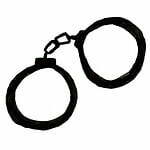
Many perceive defence counsel as snaky, tricky, tactical used car salesman-like villains in courtrooms all across our countries. It’s easy to blame us— we defend criminals, right? The Crown Attorney on the other hand, is often championed as justice fighters— putting the bad guys in jail where they belong, virtuous and pure.
The #MeToo and #believethevictims movements are obviously focused on the rights of complainants in sexual assaults, but the movement also seeks to villainize defence counsel who asks questions in cross-examination and passionately advocate for their client. It is these very moments in the courtroom that are glorified as shining examples of the slimy business of defending accused persons and the myth that defence counsel are pulling a fast one over the eyes of lady justice. Because there’s no risk of wrongful convictions, or the Crown acting improper, right? Let’s just do away with defence counsel all together since apparently we don’t further the goals of justice.
There is no room for improper tactics from either side, otherwise justice will not prevail.
But yet, amidst the fictitious fog, the Ontario Court of Appeal reminds us all of the parameters of the Crown Attorney, because they too, can cause a miscarriage of justice because of their conduct in the courtroom. In R. v. J.S., [2018] O.J. No. 576, on appeal from a judge and jury trial held in the Superior Court of Justice, the Court of Appeal drew bright fluorescent lines around the Crown Attorney’s permissible conduct when they are presenting a weak case. In J.S., the accuser did not see her alleged attacker and only saw a shadow. The accused was known to her but she never identified him as her attacker. She testified that 98% of what happened she doesn’t remember. Before the trial, she told friends that it could have all just been a bad dream. There was some male DNA found on the complainant’s underwear, but the forensic expert could not determine who deposited the fluid, or what the fluid was, or even when it was deposited. The complainant had a boyfriend at the time.
The accused and his girlfriend testified that they were in bed together when they heard cries from the complainant’s room. The accused entered the room with his girlfriend and they helped her calm down until police arrived. The accused remembered helping the complainant find her underwear at her request; the girlfriend remembered watching that take place. The complainant was taken to hospital and swabs were taken to complete a traditional “rape kit.” There was no semen detected on any of the tested swabs.
As Moldaver, J put it in his reasons in Groia, “trials are not…tea parties.” The Crown in this trial implored the jury to find the accused guilty beyond a reasonable doubt. She told the jury that the lack of detail in what the accused told the police on arrival was detrimental to his credibility, putting aside completely his right to silence enshrined by our Charter of Rights and Freedoms the Court of Appeal held. She told the jury that the fluid the complainant’s underwear was the accused’s saliva. Having no conclusive forensic evidence to back up this ferociously exaggerated claim, the Court of Appeal held that that the Crown was misleading the jury and misappropriating the evidence.
However, at trial, the jury convicted the accused. Assumingly, they largely were influenced by the Crown Attorney’s closing address to them. The Judge, Justice Robert F. Scott, did not intervene and provide an instruction to the jury to correct the Crown’s improper comments in her address. The accused was sentenced to 18 months in jail.
Thankfully, the accused appealed his sentence and The Court of Appeal ordered a new trial in the circumstances. The Court of Appeal held there was a miscarriage of justice and the accused did not have a fair trial.
The Supreme Court of Canada has also echoed a similar tempo in Groia v. The Law Society of Upper Canada 2018 SCC 27 where a defence counsel had his licence suspended for incivility in the courtroom. The majority held that the decision by the Law Society of Upper Canada was unreasonable. Importantly, the Court did not waiver from pointing out that despite the allegations against Mr. Groia, the Prosecutor in that case also said unfavourable things in court and both sides acted in a way that was less than ideal. But the poor conduct of the Crown Attorney had been completely lost in the decisions by the Law Society and in the surrounding media coverage. The majority of our country’s highest Court did not forget, and made a point of mentioning it in their reasons for an important reason.
As Moldaver, J put it in his reasons in Groia, “trials are not…tea parties.” Nor are the defence or crown attorney’s enemies. Both are important members of the adversarial system: equal contributors and advocates of justice. And if both parties do the best job they possibly can, then the system is working. There is no room for improper tactics from either side, otherwise justice will not prevail.

